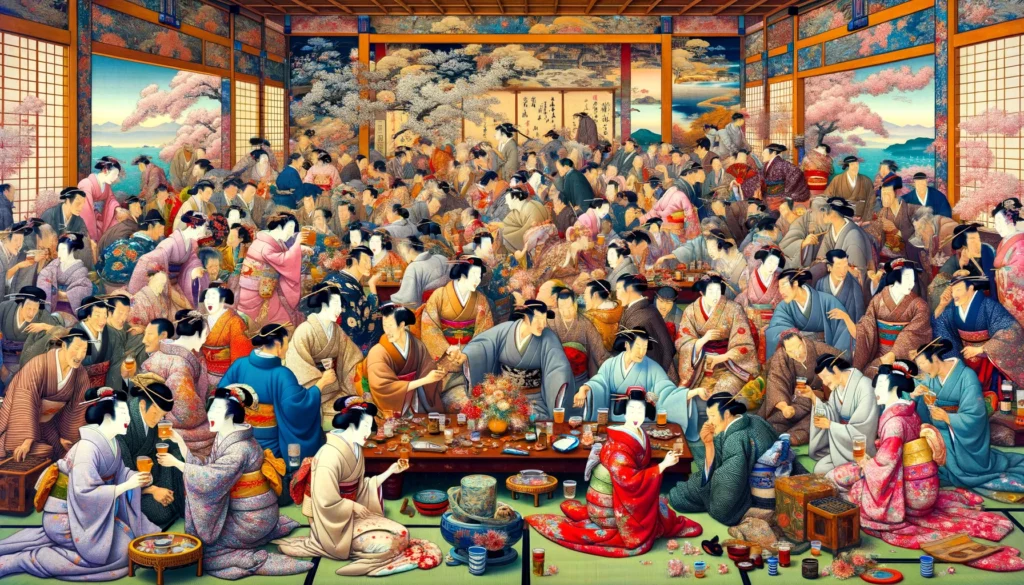

Let’s start with the beginning
The almost mandatory custom of nomikai (飲み会) is always present in Japan (although to a lesser extent than in the past), being together after work with colleagues and the boss, eating, and especially drinking. On these occasions, the rules current in the workplace are loosened and, thanks to alcohol, the tongues too. Very often, thanks to the more relaxed atmosphere, work colleagues are able to express criticisms or make suggestions on the functioning of the office that otherwise they would never have had the courage and the opportunity to express, without suffering negative consequences. Indeed, this attitude is encouraged by the most experienced leaders, to get feedback that otherwise they would not have been able to obtain in a strictly controlled organization like the Japanese one. On these occasions, even the bosses can relax, and again thanks to abundant drinking, be able to loosen the social distances that characterize their role in the office. It is not at all rare to see that boss, the one who seemed not to have even the shadow of emotions, singing at the top of his lungs romantic songs with a tie tied around his forehead and completely drunk. Just as it is not uncommon to accompany him in arms by his subordinates to the subway stop or to slip him into a taxi at the end of the evening. And, what is even more normal, the next day none of those present will speak to anyone so that the authority and role of the boss are not affected. In short, it is like saying that “What Happens in Vegas Stays in Vegas”1. And what does this have to do with the sensei? Believe me, a lot.


Let’s start from the beginning: what does the word sensei (先生) mean? It literally means “the one who came first”. Therefore he is a person who has started on the journey before the others and, at a certain point, has begun to teach what he has learned along the way (generally, in the field of martial arts he is a man because, to be honest, our world is still, and unfortunately, an almost exclusively male playing field, especially in the high ranks. Luckily things are changing and, in my humble opinion, is to us so that this happens as quickly as possible). So we can easily refer to sensei as a teacher, and in Japan teachers have just this title, or someone who is more experienced and who passes on his knowledge to us. Except that, when we enter the dojo, the figure of the sensei often rises to a “divine” dimension.
Both in the West and in the East the figure of the teacher, or master, has undeniable social importance, as he or she possesses special skills and knowledge. Even today the title of Master (with a capital ‘m’) is used as a particular form of respect in different fields, in addition to the religious meaning of the term. Unfortunately, over the last few decades we have emptied of importance the figure of the teacher but, having not been able to replace it with something else, we are still looking for someone to guide us, and this leaves a free field for self-styled masters and gurus of all kinds. And we, as good little orphans, are increasingly looking for a father figure who is able to guide us and above all to tell us what to do in every aspect of our lives, except to get angry if we do not find the answers we want to have.
“I give my players what they need, not what they want” Massimiliano Allegri
So, when the teacher, guru, or sensei of the hour does not match our expectations, we change, school, ashram, or dojo always looking for assurances and miraculous formulas, entrapped in a never-ending loop. What we can do to break this vicious circle? Before answering this question we must ask ourselves what are our real expectations towards sensei and masters in general and, above all, get out of our wishful thinking.
To be continued…
- It’s the famous slogan and advertising campaign for the city of Las Vegas, Nevada.
